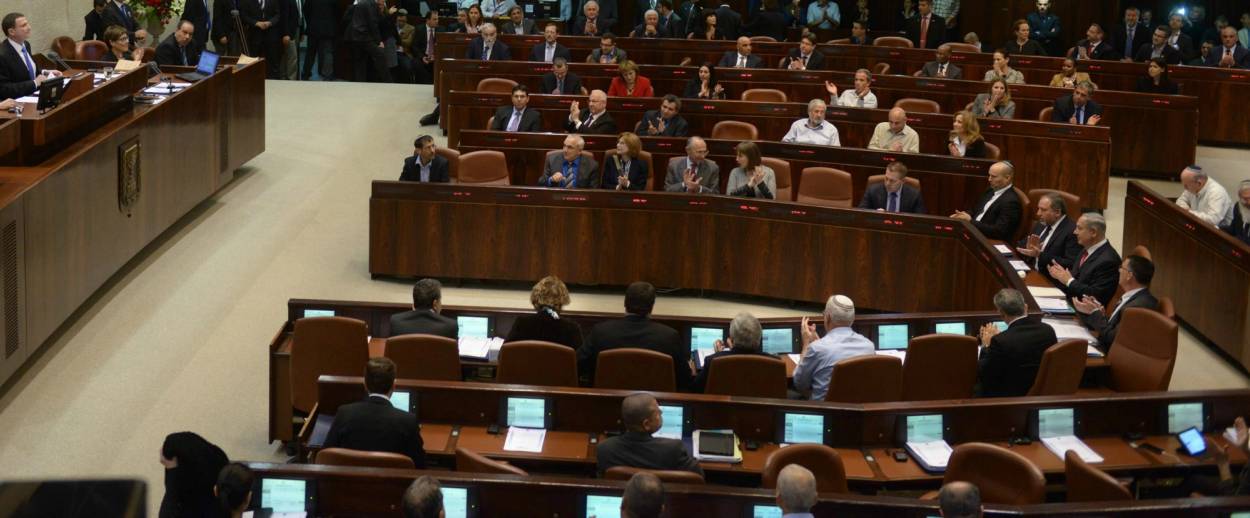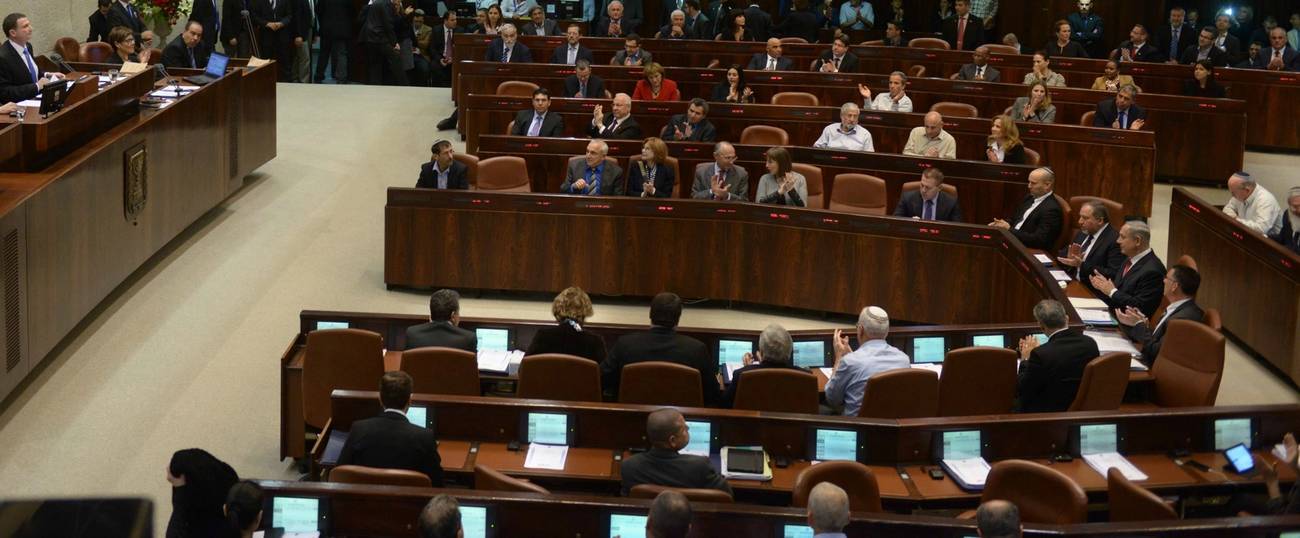Israel’s “Basic Law: The Jewish Sharia Kingdom” would come into effect in 2048—if amendments proposed by opposition parties are adopted by the Knesset. Israeli lawmakers turned up to work early this morning to sift through some 200 amendments, including the jocular one mentioned above, proposed in a bid to filibuster the passage of the controversial “Basic Law: Israel—The Nation State of the Jewish People”.
The bill is supposed to enshrine Israel’s Jewish character in semi-constitutional law, consolidating several existing features—the flag, the Hebrew calendar—but also correcting what the right views as an overemphasis on democracy over the country’s Jewishness.
And in so doing, lawmakers have opened a Pandora’s box in a country born as a revolutionary ideological project, throwing the nation’s very soul into a heated debate.
The bill’s most generous opponents say that it is unnecessary, or upsets the fragile balance between the Jewish and democratic pillars of Israel’s character. Its most vicious critics argue that the idea of a Jewish State is itself a racist endeavor. Just this week, the government was forced to backtrack on the controversial Article 7b, which would have allowed groups to establish segregated communities on the basis of religion or nationality. That has been watered down to a clause saying the state views “Jewish settlement as a national value”.
The opposition is up at arms, proposing sarcastic and satirical amendments, from minor points of grammar to insertions of “not” and sweeping changes, all in an effort to delay the bill.
Consider the law’s name. The Arab parties propose renaming it “Basic Law: Apartheid,” while the Zionist Union proposed it be called “Basic Law: Cancellation of the Principles of the Declaration of Independence.” The left-wing Meretz party went a step further, offering two new names: “Basic Law: Israel—The Place That Used to Be a Democracy,” and “Basic Law: I Want to Win in the Likud Primaries.”
The bill’s purpose? Thanks to the Zionist Union and Yesh Atid, MKs will vote on whether to say it is “to give leverage to forces hostile to Israel to argue that Israel is illegitimate” or “to please the electorate on the right before elections,” among countless other tongue-in-cheek descriptions. As for the state’s symbols, Meretz proposed replacing the menorah with “a picture of Rabbi Meir Kahane,” with the slogan “Kahane was right” at the bottom. Instead of “Hatikvah,” the party suggested the national anthem be Israel’s winning Eurovision entry, “Toy.”
But behind the facetious attempts at a filibuster is the fateful question of what kind of country Israel wants to be. Center-left parties are insisting on adding the words “democracy” and “equality” to the law, with Meretz looking to shoehorn “secular” into the definition as well. An Orthodox MK wants Israel to be the “state,” but not the “nation state,” of the Jewish people, as part of a bid to define “Jewish” more religiously and less nationally.
The centrist Yesh Atid party, on its end, is trying to ram in mandatory army service as an element of civic equality described in the law, while Meretz also wishes to legislate public transportation on Shabbat, and Jewish Home is pushing to guarantee Jewish access to the Temple Mount. Yesh Atid and the Zionist Union are hoping the bill will recognize Orthodox, Reform, Conservative, and secular Jews as equal. And Shuli Moalem of Jewish Home wants the Bible to be anchored in constitutional law as a “source of inspiration” for lawmakers. And all that is before asking what the role of the Diaspora should be, a whole other can of worms.
Most Israelis believe Israel should be a Jewish and democratic state. Ask 120 of them what that means, however, and you’ll get hundreds of different answers, some humorous and many serious, all coming up for a vote this week.

